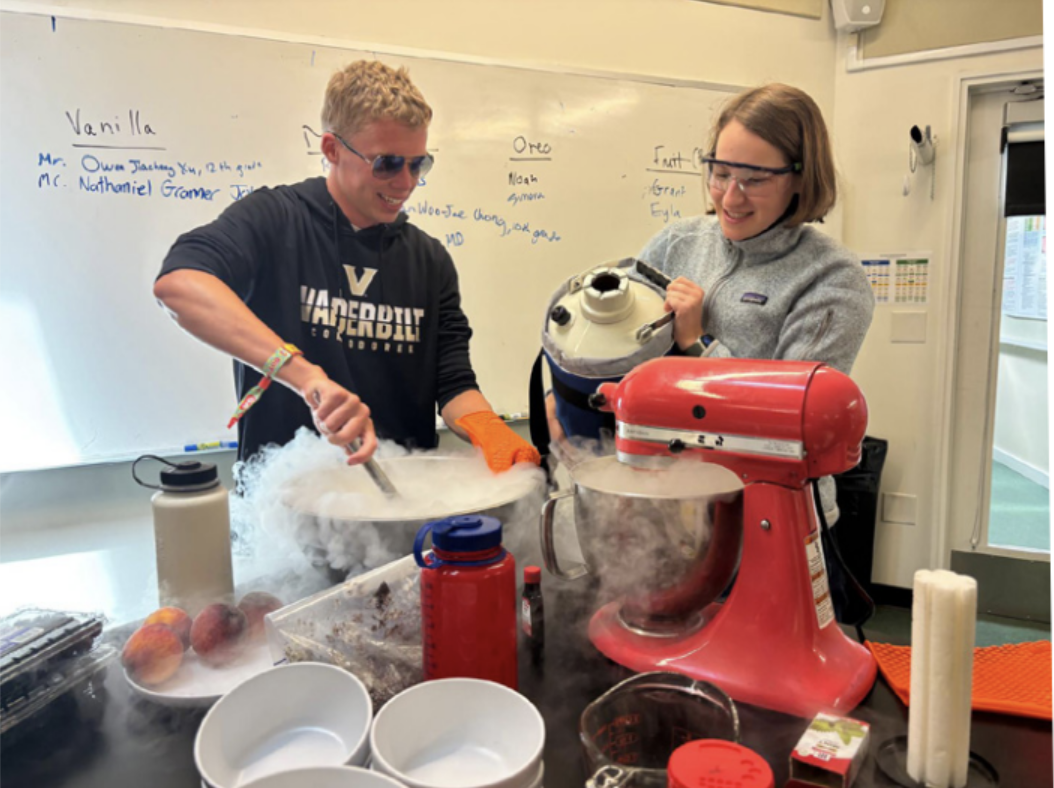Cyrus Allen ‘25 turned his personal battle with pediatric autoimmune neuropsychiatric syndrome, also known as PANS, into a mission to help others and raise awareness through the Reid Mangels Fellowship.
Allen’s path to PANS advocacy began with his own health struggles as a child.
“When I was 10, I was diagnosed with [PANS]. It took me out of school for a little bit. It was rough,” Allen said.
Having overcome health challenges, Allen was determined to use his experience to help others.
“I know there are plenty of other kids who are where I was, if not worse, struggling and they need help,” he said.
For his junior fellowship, Allen undertook two primary tasks: delivering a TED Talk and producing an educational video. The former was deeply personal, as Allen said, “The TED Talk is my story.”
Allen’s goal for the Ted Talk was not only to raise awareness about PANS but also to serve as an advocacy tool for legislators, parents and children — to educate and inspire action.
The second major piece of his fellowship was creating an educational video. The video is aimed at patients dealing with PANS.
“I made an instructional, informational video for patients with my autoimmune condition basically explaining what it is, what their treatments are, what’s happening to them and possible things they can do about it now,” Allen said.
One of the key components of Allen’s work was to educate those unfamiliar with PANS about what it actually is.
Allen said PANS as a condition where “your own immune system attacks itself.” He said, “Normally, you get a bacterial infection and your immune system kicks into overdrive. But instead of just attacking the bacteria, it attacks your own healthy tissue — most importantly, your brain.”
This autoimmune attack leads to inflammation in the brain, which can cause neuropsychiatric symptoms such as sudden mood changes, tics and obsessive behaviors.
Preparing for the TED Talk was no small feat. Allen spent much of his junior year writing and rehearsing his speech. He described the process as smooth but intensive.
“I spent a lot of spring junior year writing the TED Talk, and then I went for a week, did a lot of rehearsals, practiced speaking and then gave it,” he said.
The TEDx event, which took place at Sacred Heart in San Francisco, allowed Allen to share his message with a wider audience.
Although the process of preparing and delivering the talk was demanding, Allen found it immensely rewarding. His hope was that the talk would not only educate the public but also drive positive change in how PANS is understood and treated.
Allen also worked closely with a research associate, a leading expert in the field of PANS who had personally treated him in his youth. “We had a relationship for a long time, and she gave me a lot of valuable insights,” he said.
This collaboration was pivotal to ensuring that both the TED Talk and the educational video provided accurate, useful information. “I asked her what her clinic needed to tailor the video to them,” Allen said.
Allen said the long-term impact of his work will be the most meaningful part of his fellowship.
“I’ve done speeches before, I’ve done talks,” he said, “but being able to produce two works — the video and the talk — that will be consistent resources for the clinics and organizations I work for to use and to rely on. I think that is meaningful.”




